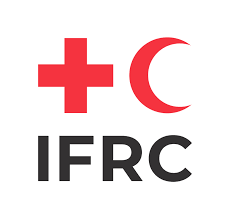
From: The International Federation of Red Cross & Red Crescent Societies (IFRC)
Two years since the Russia-Ukraine international armed conflict escalated, the human cost is insurmountable, with no end in sight. Not only have many lost their loved ones, homes, livelihoods, and savings, but millions of Ukrainians are struggling under increasing debt. Some people have been able to start over, but others see their needs only increasing at a time when humanitarian and government programmes are narrowing or ending altogether.
A survey commissioned by the International Federation of Red Cross and Red Crescent Societies (IFRC) has found that more than 50 per cent of people in Ukraine and living in other parts of Europe still have urgent unmet needs like medical assistance, accommodation, and employment. This is forcing them to assume debt or to accept underpaid, marginalized, or dangerous employment. On top of that, the mental health and psychosocial toll is mounting.
IFRC Europe Regional Director, Birgitte Bischoff Ebbesen said:
“Many people inside and outside Ukraine have had to start over from zero. For marginalized groups, like the elderly, the needs skyrocket further as they are more isolated, and struggle to access services and income opportunities. Amid soaring inflation and economic uncertainty, relying on small and irregular income for two years has depleted people’s savings.”
In neighboring countries, a third of people from Ukraine are borrowing money to survive. Families may spend more than a fifth of their income servicing debt, which can be a great burden and a source of anxiety. Nearly 60 per cent of respondents’ primary stress is the overall situation in Ukraine and almost half of people surveyed have said they are anxious about the uncertain future they and their family face.
IFRC’s network of Red Cross and Red Crescent Societies has allowed for a truly global response, ensuring 18 million people are receiving support across 60 countries. This includes immediate relief assistance, health and care, mental health, and psychosocial support, as well as support to housing. Cash assistance has been a lifeline for more than 1.1 million people in Ukraine and across Europe, preventing them from falling into even greater debt, and helping with rent, healthcare, and education.
Inside Ukraine, fighting and shelling are still an everyday reality to millions. People are living with this uncertainty and pervasive stress every day. Winter conditions have made it even more difficult when many houses are damaged or destroyed and water, gas and electricity supplies are limited. In hardest hit areas, essential services are difficult to access, and people face shortages of food, water and medicine. Around 55 per cent of the population in hardest hit oblasts expressed requiring urgent unmet needs with only 23 per cent having access to humanitarian assistance.
Ukrainian Red Cross Director General, Maksym Dotsenko said:
“Millions of people have lost their near and dear ones; their homes and all the property they had. They have to start their lives from scratch. Despite constant shelling and damaged infrastructure, the Ukrainian Red Cross managed to help more than 12 million people. Thanks to the powerful work of our team, who make tireless efforts twenty-four hours a day, seven days a week, we were able to provide the most vulnerable with basic necessities, evacuate them from hazardous locations and be where our help is most needed.”
The Ukrainian Red Cross is working hard to provide emergency services to those impacted by the ongoing fighting, while also supporting the recovery and reconstruction efforts in many parts of Ukraine. This includes social care services, assistance with home repairs, small business loans, and vocational training that allows people to build on skills and retrain for new careers.
“Despite the incredible impact we and others have made, now is not the time to turn a blind eye. The global attention and resources for Ukraine are waning but the humanitarian needs remain. By investing in social integration and rehabilitation programmes and local emergency response capacities, it is our ambition to help communities in Ukraine and impacted countries become stronger and more resilient than before,” said Ebbesen.
More about the work of the IFRC network: supporting 18 million people impacted in Ukraine and around the globe
Through more than 60 National Red Cross and Red Crescent Societies globally responding to the needs of people from Ukraine, in the last two years the IFRC network has helped 18 million people with immediate relief assistance. The network has also helped 1.8 million people with health and care support including 1.1 million with mental health and psychosocial support. To help tackle shortages in housing, 2.2 million have received support in accommodation by host communities.
Cash assistance has been a lifeline for more than 1.1 million people in Ukraine and across Europe, preventing them from falling into even greater debt, helping with rent and utilities, healthcare, and education expenses.
Language and integration into host communities is still a major barrier. Red Cross and Red Crescent Societies are offering language classes, community groups, and vocational training, making it easier for displaced people to find a job, connect better with communities and become self-sustainable.
Using their relationships in communities, the Ukrainian Red Cross is playing a key role in setting up rehabilitation and mental health services. Staff and volunteers are offering social care services, assistance with home repairs, small business loans, and vocational training that allows people to build on skills and retrain for new careers.
IFRC’s Ukraine and impacted country appeal has a 38 per cent funding shortfall
The IFRC emergency appeal has only received 62 per cent of the funding requested, leaving a significant gap in resources to address the increasingly severe needs of the impacted population today.
Investment in both immediate humanitarian assistance and longer-term social integration and rehabilitation programmes is critical to help communities in Ukraine and impacted countries become stronger and more resilient than before.
Data links:
IMPACT survey: https://dashboards.impact-initiatives.org/reg/longitudinal_surveys/
IFRC Post-Distribution Monitoring Survey: https://go.ifrc.org/emergencies/5854/additional-info/multi-purpose-cash-and-pdm







Comments